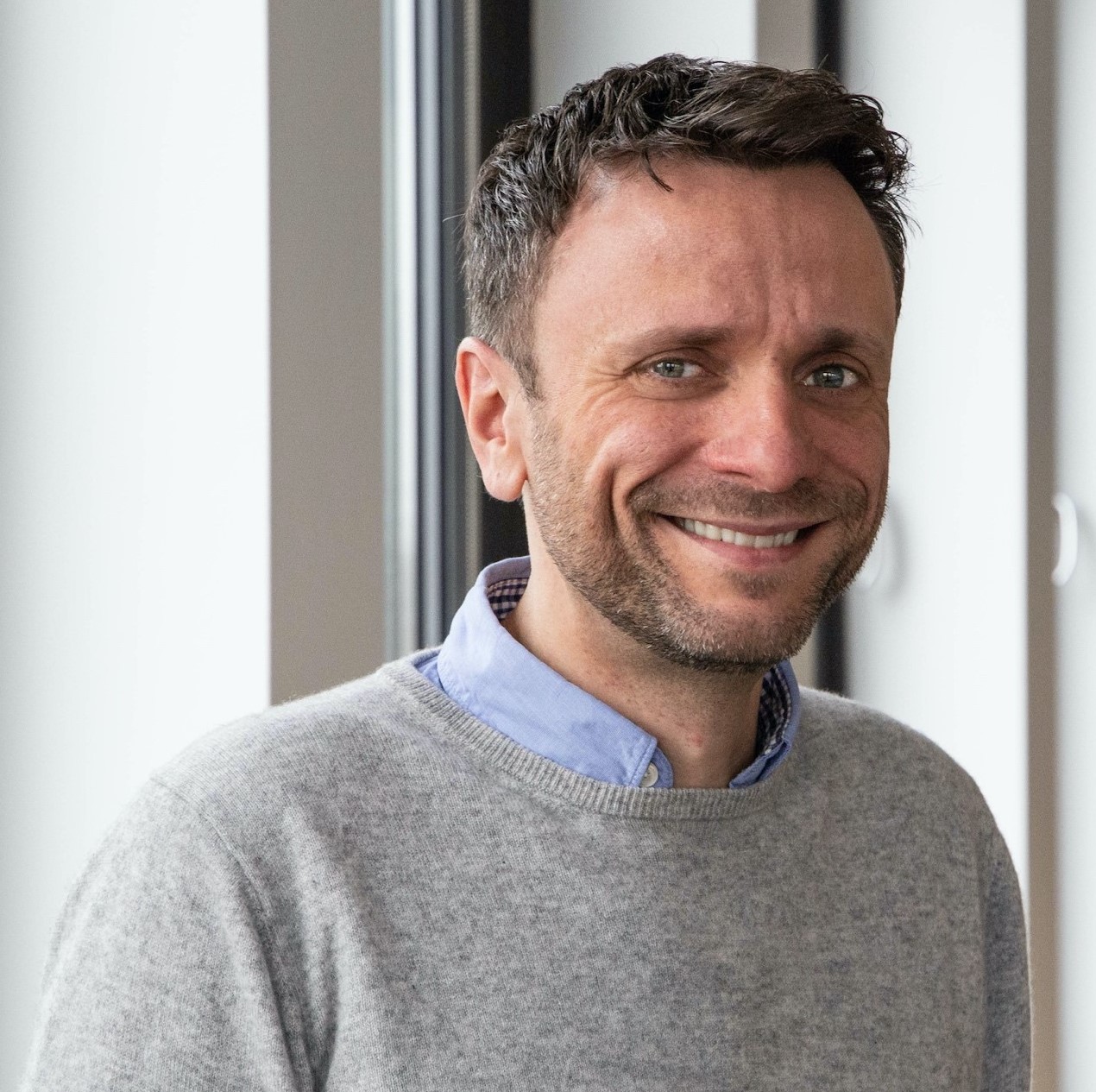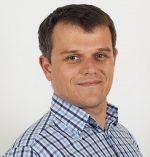SERT Research Core Team
CONTACT: For questions or contact please send an email to: Anna Eriksson, anna.eriksson@bth.se and we will get back to you as soon as possible.

Prof. Dr. Tony Gorschek
tony.gorschek@bth.se
Dr. Tony Gorschek is a Professor of Software Engineering at Blekinge Institute of Technology (Sweden). He is the project manager of the SERT Profile and he has over fifteen years of industrial experience as a CTO, senior executive consultant and engineer, but also as chief architect and product manager, in addition to 15 years as a research scientists.
Dr. Gorschek has built up six startups in fields ranging from logistics to Internet based services and algorithmic stock trading. Currently he manages his own consultancy company, works as a CTO, and serves on several boards in companies developing cutting edge technology and products. His research interests include empirical software engineering, requirements engineering, technology and product management, process assessment and improvement, quality assurance, and practical innovation. A clear theme in Dr. Gorschek’s research is the focus on applied research, where the challenges are based on real industrial needs, and where solutions are developed to address these needs. Most importantly is that research success is measured not only in scientific publications, but more relevant in usability and usefulness of research result in industry through the measurement of efficiency and effectiveness and return on investment.

Prof. Dr. Daniel Mendez
daniel.mendez@bth.se
Daniel Mendez is Professor for Empirical Software Engineering at the Blekinge Institute of Technology, Sweden, and Senior Scientist heading the research division Requirements Engineering at fortiss, the research and transfer institute of the Free State of Bavaria for software-intensive systems and services. He is further Associate at the Technical University of Munich, where he received his PhD and habilitation degrees, and co-founder and chairman of Pint of Science Germany e.V., a non-profit society dedicated to cross-disciplinary science communication and public outreach. For the SERT Profile, he serves as the vice project manager.
After studying Computer Science and Cognitive Neuroscience, Daniel concentrated his research on Empirical Software Engineering with a particular focus on interdisciplinary, qualitative research in Requirements Engineering and its quality improvement – all in close collaboration with the relevant industries. Since then, he has regularly published in various software engineering venues and he has occupied several key positions in venues of the empirical software engineering community. Among them, he served as PC chair for the International Symposium on Empirical Software Engineering and Measurement (ESEM). He is further editorial board member at the Empirical Software Engineering Journal (EMSE), the Journal of Systems and Software (JSS), and the Information and Software Technology Journal (IST). In the role of handling area editor, he co-chairs the special tracks Reproducibility & Open Science at EMSE and In Practice at JSS, the latter dedicated to research of particular relevance to industry. He is further a member of the ACM, the IEEE Computer Society, and the German association of university professors and lecturers. Finally, he serves as associated member to the International Requirements Engineering Board where he leads the working group IREB Research, and he serves as the representative to ISERN, the International Empirical Software Engineering Research Network.
Further information on his activities, projects, and publications are available at http://www.mendezfe.org.

Dr. Michael Unterkalmsteiner
michael.unterkalmsteiner@bth.se
Michael is a senior lecturer at Blekinge Tekniska Högskola and a research consultant with Qualicen GmbH. He is a regular reviewer for premier Software Engineering journals and co-organizer of the Requirements Engineering and Testing Workshop.
Michael Unterkalmsteiner has been researching Software Engineering since 2009, focusing in particular on the coordination between requirements engineering and software testing. His research work with many industry partners is shaped by empirical problem identification, in-depth analysis of the state-of-art and practice, and collaborative solution development. This empirical, practice-driven approach has led to innovative and scalable solutions. His current research focuses on designing and implementing automated decision support systems for software engineers. He follows thereby a data-driven approach that aims at enabling engineers to focus at tasks where their expertise and human intelligence is valuable and difficult to replace by machine-based solutions. An example implementation of this strategy is to identify quality defects in large natural language requirement specifications.
Similar to a spell checker, this solution flags potential issues in requirements, allowing requirements engineers to quickly fix those issues and move on to more demanding tasks, such as verifying the correctness of requirements which requires a deep domain understanding.
Keywords: requirements engineering, natural language processing, data mining, empirical software engineering, verification and validation

Dr. Javier Gonzalez Huerta
javier.gonzalez.huerta@bth.se
Dr Javier Gonzalez Huerta is Assistant Professor (Universitetslektor) of Software Engineering at Blekinge Tekniska Högskola (BTH). He is also associate member of the Laboratoire de Recherche sur les Technologies du Commerce Électronique (LATECE) in the Université du Quebec à Montréal (UQÀM).
Dr Javier Gonzalez Huerta received his Ph.D. in Computer Science from the Universitat Politècnica de Valencia (UPV) in 2014, after working in industry for more than 10 years as software developer, head of the development department and project manager. The main focus on his research is the quality of software intensive systems, the boundary of software architecture and human aspects of software development, the usage of data-mining techniques in Software Engineering as well as software asset management and technical debt.
Javier Gonzalez Huerta have published and presented more than 15 research works in different venues related to the aforementioned research topics; he served as PC member or Additional Reviewer in different Software Engineering journals, conferences and workshops (REJ, SOSYM, MODELS, SPLC, PROFES) and he have also been an active member in the organization of several conferences related to Model-Driven Software Development and Software Engineering (MODELS2014, SAM2014, MCETECH2015 and JisBD2010).

Associate Professor Krzysztof Wnuk
krzysztof.wnuk@bth.se
Krzysztof Wnuk is an assistant professor at the Software Engineering Research Group (SERL) of Blekinge Institute of Technology, Sweden. He received his M.Sc. Degree from Gdansk University of Technology, Poland (2006) and his PhD from Lund University, Sweden (2012).
Krzystof Wnuks research interests include market-driven software development, requirements engineering, software product management, decision making in requirements engineering, large-scale software, system and requirements engineering and management and empirical research methods. He is interested in software business, open innovation and open source software. He works as an expert consultant in software engineering for the Swedish software industry.

Dr. Emil Alégroth
emil.alegroth@bth.se
Dr. Emil Alégroth is an associated Senior Lecture at Blekinge Institute of Technology. Emil’s research has, for the majority, focused on verification and validation through automated testing, more precisely GUI-based test automation. This research has been empirical with a strong industrial component and the goal to transfer state-of-art knowledge to industrial practice.
Emil Alégroths dissertation, titled “Visual GUI Testing: Automating High-level Software Testing in Industrial Practice”, focused on GUI-based automated testing with tools that use image recognition. Emil’s research in this area has been impactful, with hundreds of citations, and founded a new technique referred to as Visual GUI Testing.
In addition to testing, he has done research on processes, technical debt, education best practices and how to align requirements and tests. Thus, providing him with a broader view of the challenges associated with software engineering in industrial practice, from several perspectives.
Emil’s research has been industrially focused and he has worked together with more than 20 companies in various projects, research studies and publications. These companies include, but are not limited to, Saab Systems, Spotify, Grundfos, Jeppesen/Boeing, Siemens Medical, TetraPak, Inceptive and Axis Systems.
Emil has also been both supervisor and examiner for an excess of 20 master theses and civil engineering theses students in a variety of empirical topics, including several industrial projects. He also has teaching experiences varying from traditional class-room lecturing to online courses on both graduate and postgraduate level.
In addition to his academic career, Emil is the CEO and co-founder of a start-up company that has operated within the services and tool-development area since 2015. The company is a spin-off of his own research with focus on pushing state-of-art knowledge into industrial state-of-practice.
